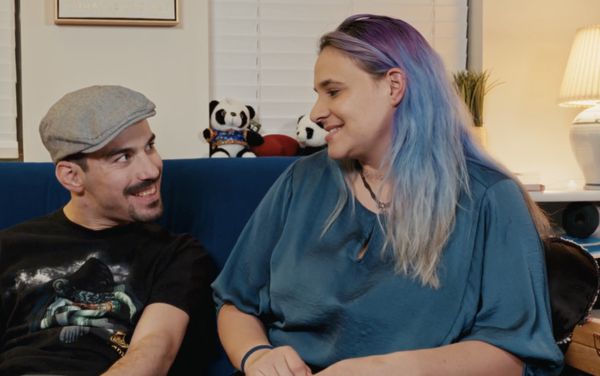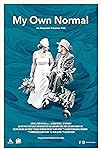Eye For Film >> Movies >> My Own Normal (2024) Film Review
My Own Normal
Reviewed by: Jennie Kermode

For a lot of his childhood, Alexander Freeman says, he felt as if he was underwater, because it was really hard, physically, to force out words, to communicate. Now he speaks fluently, though still with obvious effort. There are subtitles for those who struggle to catch it all. it’s easier to know what he means because we can see him, and because he’s in control of every aspect of the medium. He has found his means of expression in the language of film.
Freeman has made dozens of films, including shorts and features, documentary and fictional pieces, plus a few TV episodes. This is his most personal work to date, centred on the ambitions he has nurtured in his personal life. A lot of people dream of finding true love and becoming parents, but for Freeman that journey is more complicated than it is for most, because he has quite severe cerebral palsy. Made over several years, this documentary follows him from the point of finding out that his girlfriend is pregnant, through raising their child together, to looking at how they can formalise their long term commitment.

If you’re disabled or a carer yourself, you won’t learn anything new. This is really pretty familiar stuff, but it’s told well enough, and the leads are all likeable people. Freeman really has landed on his feet with girlfriend Orina, who has incredible reserves of energy and good humour. His parents adore her and suggest that they had known how amazing she was then they would never have told him that it would be better to terminate the pregnancy. That’s not the sort of remark that’s easy to forget, however, and he struggles to let go of the hyrst it caused.
Cerebral palsy can have a genetic component, but it’s rare. There is also the issue, however, of disabled people being seen as incapable of parenting. Freeman complains that people always think he’s some other kind of relative and can’t be young Maya’s father. He’s afraid that she might be taken away from him, though it’s not clear that there has ever been any direct threat of this. Though he needs assistance with things like feeding himself and getting to the toilet, he’s quite capable of playing with his kid, which is more than a lot of fathers do, and she plainly adores him.
Reflecting on his own childhood, Freeman notes that his parents didn’t realise, when he was an infant, that the difficulties he had in doing some commonplace things would persist. They were always determined to give him as much opportunity as possible, something which, the home movie footage included here suggests, extended to letting him take risks and have adventures. Both of them contribute here, though their contributions are very much filtered through his point of view.
Freeman has also benefited from having almost constant professional care provision (lockdown periods aside), something that simply isn’t available to a lot of people with similar levels of disability. There’s no suggestion that he has found himself in a poverty trap because of this on an individual level, but it does affect his options where marriage is concerned (fortunately, unlike in the UK, he is allowed to cohabit with Orina without financial penalty or loss of support). This is one of a number of injustices with which non-disabled viewers may not be familiar.
Stylistically, the film again keeps it simple, though there is a recurring water motif which also ties into some of the family’s activities together. It ends on a high note, with a celebration whose trappings may amuse those familiar with Freeman’s Poe adaptations. it would have been nice to get a little more of that kind of thing throughout the film – there is so much focus on disability here that we don’t get much sense of who these people are beyond that – but nevertheless, it’s no small task to bring a film like this to the screen and get it out there, so one hopes that people will watch and learn.
Reviewed on: 13 Jun 2024















